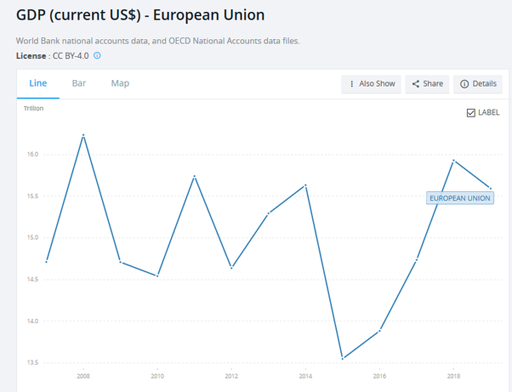Cowbee [he/they]
Actually, this town has more than enough room for the two of us
He/him or they/them, doesn’t matter too much
Marxist-Leninist ☭
Interested in Marxism-Leninism, but don’t know where to start? Check out my “Read Theory, Darn it!” introductory reading list!
- 34 Posts
- 12.6K Comments
Another View of Tian’anmen by Sun Feiyang and Roderic Day is a good introduction to the backgrounds of the protest, its distortion and foreign-backed influence, and western media distortion of both the context and the events of June 4th themselves. For further reading, Qiao Collective’s Tian’anmen Protests Reading List has a lot more you can dive into. Both should give you a better understanding of the non-western viewpoint on what’s officially called in China as the “June 4th Incident.”
No problem! What would it take for you to consider it socialist, though? The principle aspect of the economy is public ownership, so that should be enough by most standards to distinguish it from capitalism, where private ownership is the principle aspect.

 3·1 day ago
3·1 day agoThe political compass does more damage than it helps, ultimately. Left vs right is usually about collectivization of some form vs private ownership, but things get weird when you get to “libertarian vs authoritarian.” Neither of those really mean anything when the size of the state is related to the class character of society, the size of state isn’t really something people pick so much as it is something that is shaped by the mode of production.
Differences among the left and right are far more nuanced and can’t be distilled into “libertarian” vs “authoritarian.”
The PRC has a socialist market economy. The large firms and key industries are thoroughly publicly owned, public owmershio is the principle aspect of the economy. They are at a developing stage of socialism. As for working conditions, they are improving over time, and general material conditiond have skyrocketed over the last century.
Capitalism would be somewhere like the US Empire, where the large firms and key industries are overwhelmingly privately owned.

 8·2 days ago
8·2 days agoI’m aware that the anarchist-adjacent left wants more cooperative, decentralized production than large scale, planned production, but as juxtaposed with right libertarians, who want private property and at most a nightwatchman state, the difference is still in how ownership is spread. I don’t agree with any libertarians, but it’s a pretty fair appraisal.

 1·2 days ago
1·2 days agoI said from the consumer’s point of view, it doesn’t matter unless the process is the commodity, ie art. I said that if the process isn’t the commodity, then from the consumer’s perspective, they are roughly equivalent if both are identical end-products.
From the laborer’s point of view, throwing a few prompts into an LLM is hardly an expression of artistry, art has use-value when the medium is intimately grappled with as a form of expression, whatever form that may be. If the laborer is just trying to show a floor plan, for example, they don’t need to draw it by hand, the information is the goal. AI is fine if advanced enough to help with that.
That’s why it’s important to correctly analyze tools, their limitations, and where they could have potential use, rather than insisting on avoiding tool usage for not making us “struggle” as hard.
 1·2 days ago
1·2 days agoThen this is even less clear, what on Earth is “my particular orthodoxy?” And further, the calculator is absolutely an apt comparison. A calculator is a system designed with logic by human hands to shortcut the process of someone, say, multiplying two numbers, that they otherwise would have had to do by hand. The calculator isn’t thinking, and neither is AI, it’s simply a system that mimics its inputs and weights them towards its prompts. Neither the calculator nor the AI thinks, but that doesn’t mean they are harmful to use, nor does it mean that neither has no use-cases.
As for being reactionary, glorifying struggle and using it to oppose the forward progression of technology on the basis of it harming a metaphysical “human spirit” is reactionary. I don’t mean it as an insult so much as to point out that it quite literally is reactionary. Labor should be centered, not struggle, and thus any tool that can be used to assist labor should be understood properly, including its limitations, like your article stated.
Either way, if you want to stop this, then be my guest.

 1·2 days ago
1·2 days agoWhat does “ignoring knowledge of the production process” even mean? Who is doing the ignoring? What knowledge are we talking about? You’ve said before that using AI is instrinsically damaging, but have only shown proof that AI can be misused if we don’t understand its limitations, a sentiment the article you linked echos exactly but you appear to disagree with.
 1·2 days ago
1·2 days agoThis is just an argument against all tools like calculators, though. I haven’t deflected anything, I’ve answered you at your arguments. I disagree. Further, AI does not remove “what makes us human” any more than a calculator does. It can’t replace cognition, as you said. Your point’s natural conclusion is that, since “struggle is what makes us human,” tools that alleviate that struggle in some ways take away our humanity. It’s a deeply reactionary viewpoint, it glorifies the past and justifies suffering.
Marxism isn’t “clearly insufficient to describe this moment in history,” Marxism has evolved and adapted over the years. It fully encompasses AI, in that AI is nothing truly new. You don’t really understand what you’re trying to argue against, and you disagree with the base purpose of articles you use in place of your own arguments.
And as for following you around, I sort Lemmy.ml by new usually. If you make a bunch of posts clearly gesturing towards interactions we’ve had, I’ll respond.

 1·2 days ago
1·2 days agoThe product exists as a use-value. How it is created does not matter for the user of the use-value unless the process was the use, ie art. Labor is all that matters from the worker’s perspective, they get none of what they create unless they are paid in kind. What you appear to be arguing is that labor involving AI is an almost supernatural corrupting force, like a calculator.
 1·2 days ago
1·2 days agoThat’s a bit of a copout, isn’t it? I read your article and largerly agreed with it, but now that I’ve pointed out that it and I agree, you don’t like it? I mean, sure, you don’t have to agree with it and can have your own analysis, but when you substitute an argument with an article to make your point for you and I actually read it, then suddenly that’s no good, that’s shallow.

 1·2 days ago
1·2 days agoWe do by default in capitalism, that’s the basis of commodity fetishism.

 1·2 days ago
1·2 days agoCognition and AI? We absolutely can, just because some people fail doesn’t mean it’s intrinsic.
 1·2 days ago
1·2 days agoAlright, regarding your edits:
-
I never once said you said AI is capable of thinking. I said the article is intended at de-mystifying AI dogmatists, as in dogmatic supporters, that think it can. Further, you’ve only supplied evidence that misusing and misunderstanding the purpose of AI and its limitations can be harmful, not how it is intrinsically damaging. The article you supplied disagrees with this idea.
-
This is silly. Now that it’s clear that the article is more in line with what I’m saying, that we need to be careful and understand its limitations and not confuse it for cognition, but that we can still use it, you’re just calling it a mental off-ramp. Here is the actual text:
Computers don’t actually do anything. They don’t write, or play; they don’t even compute. Which doesn’t mean we can’t play with computers, or use them to invent, or make, or problem-solve. The new AI is unexpectedly reshaping ways of working and making, in the arts and sciences, in industry, and in warfare. We need to come to terms with the transformative promise and dangers of this new tech. But it ought to be possible to do so without succumbing to bogus claims about machine minds.
It directly states that there is transformative promise in AI, and that it’s changing how we work and make in arts, sciences, industry, and warfare. Message the author if you want to check if they were just providing a mental off-ramp, but I’m going to take the author at the text, as written, directly having a more grounded and materialist analysis than yours.
-

 1·2 days ago
1·2 days agoI quite literally stated that it matters in some cases and not in others.
If the process is the purpose, then it matters. If the end product is the purpose, then it largely doesn’t.

 1·2 days ago
1·2 days ago“We” in this moment is you, right now. If the end product is the same, then it is the same. If the process is the use-value then it matters, but if not, it doesn’t.
Ideas and symbols matter, sure, but not because of any metaphysical value you ascribe them, but the ideas they convey.
 1·2 days ago
1·2 days agoI didn’t ignore it, you took the third paragraph as the only point and ignored everything I highlighted.
 2·2 days ago
2·2 days agoQuoting and bolding your own reference seems to be an easy way to counter here:
Computers don’t actually do anything. They don’t write, or play; they don’t even compute. Which doesn’t mean we can’t play with computers, or use them to invent, or make, or problem-solve. The new AI is unexpectedly reshaping ways of working and making, in the arts and sciences, in industry, and in warfare. We need to come to terms with the transformative promise and dangers of this new tech. But it ought to be possible to do so without succumbing to bogus claims about machine minds.
What could ever lead us to take seriously the thought that these devices of our own invention might actually understand, and think, and feel, or that, if not now, then later, they might one day come to open their artificial eyes thus finally to behold a shiny world of their very own? One source might simply be the sense that, now unleashed, AI is beyond our control. Fast, microscopic, distributed and astronomically complex, it is hard to understand this tech, and it is tempting to imagine that it has power over us.
But this is nothing new. The story of technology – from prehistory to now – has always been that of the ways we are entrained by the tools and systems that we ourselves have made. Think of the pathways we make by walking. To every tool there is a corresponding habit, that is, an automatised way of acting and being. From the humble pencil to the printing press to the internet, our human agency is enacted in part by the creation of social and technological landscapes that in turn transform what we can do, and so seem, or threaten, to govern and control us.
Yet it is one thing to appreciate the ways we make and remake ourselves through the cultural transformation of our worlds via tool use and technology, and another to mystify dumb matter put to work by us. If there is intelligence in the vicinity of pencils, shoes, cigarette lighters, maps or calculators, it is the intelligence of their users and inventors. The digital is no different.
But there is another origin of our impulse to concede mind to devices of our own invention, and this is what I focus on here: the tendency of some scientists to take for granted what can only be described as a wildly simplistic picture of human and animal cognitive life. They rely unchecked on one-sided, indeed, milquetoast conceptions of human activity, skill and cognitive accomplishment. The surreptitious substitution (to use a phrase of Edmund Husserl’s) of this thin gruel version of the mind at work – a substitution that I hope to convince you traces back to Alan Turing and the very origins of AI – is the decisive move in the conjuring trick.
The article is deliberately railing against mystifying AI and attributing to it human cognition, but it fully acknowledges that AI in its present case has uses. Making those distinct from human cognition, and not as a replacement, is important, not fetishizing AI like some AI dogmatists do.










It isn’t just the government, it’s also the fact that the US is the world’s imperial hegemon, and a settler-colonial state. There’s a large portion of workers bribed by the spoils of imperialism and settler-colonialism into complacency with the status quo, or even enthusiastic support. The oppressed black, chicano, indigenous, and other nations within the US are in general not just fucked over by the capitalists and state, but by their fellow workers.
It’s important that we identify the core issues with the US Empire, and that we don’t white-wash its genuine problems away and push them all on the state or the bourgeoisie. The working class needs to unite, but to truly do so, we have to recognize and align on anti-imperialism and decolonization, both of which require a large portion of the working class to work against their own class interests.